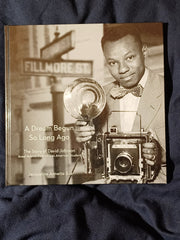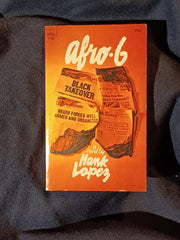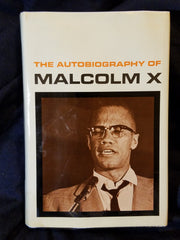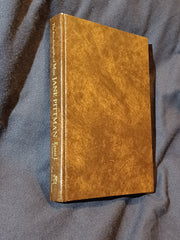Deep River by Howard Thurman First Edition first issue Inscribed with dust jacket
Deep River: An Interpretation of Negro Spirituals by Howard Thurman. First Edition first issue published by The Eucalyptus Press, Mills College, California. 1945. Inscribed, "To the Cowells/ with my deep and/ genuine appreciation/ Howard Thurman". 5 3/4" x 8 1/2 " vi, 39 pages Hardcover with dust jacket. DUST JACKET: The fragile dustjacket is about very good with A one inch by quarter inch chip to the back panel a five inch tear to the left edge of the front panel, a 1.5 inch tear along the top of the front flap seam. In addition, there are a couple of damp stains to the dustjacket: one on the bottom of the spine about an inch long, and another about 2 inches by an inch at the top left of the front panel where it meets the spine. The stains do not appear to have affected the book. Not price-clipped with dj price of $2.00. Now protected by a removable mylar dj cover. BOOK: Bright copper lettering on the front cover. Maybe light cover edge wear. Slight toning to boards. Dust soiling on ther top of the page block. Light foxing in the front gutter between the front pastedown and the first flyleaf. Otherwise, no previous owner markings. No tears, folds or creases to pages. Binding is tight with no looseness to pages. Not ex-library, not remaindered and not a facsimile reprint. For sale by Jon Wobber, bookseller since 1978. sKI18a
This book came with other books that had belonged to Harry and Olive Cowell, composer Henry Cowell's father and stepmother, at least one other inscribed to Olive Cowell from Howard Thurman. Olive helped finance The New Music Quarterly issues, a journal devoted to modern classical avant garde music. It is possible the relationship between Thurman and the Cowells was close, as Thurman's first daughter was named Olive.
"Howard Washington Thurman (November 18, 1899 – April 10, 1981) was an American author, philosopher, theologian, Christian mystic, educator, and civil rights leader.
As a prominent religious figure, he played a leading role in many social justice movements and organizations of the twentieth century.[1] Thurman's theology of radical nonviolence influenced and shaped a generation of civil rights activists, and he was a key mentor to leaders within the civil rights movement, including Martin Luther King Jr.
Thurman served as dean of Rankin Chapel at Howard University from 1932 to 1944 and as dean of Marsh Chapel at Boston University from 1953 to 1965. In 1944, he co-founded, along with Alfred Fisk, the first major interracial, interdenominational church in the United States.[2]
Thurman traveled broadly, heading Christian missions and meeting with world figures.[6] In 1935-36 he led a six-month delegation of African-Americans invited to India for meetings. At Bardoli they spoke with Mahatma Gandhi, who asked "persistent, pragmatic questions" about the Black American community and its struggles. Training for satyagraha was discussed, its difficulties in the extreme addressed.
When Thurman asked Gandhi what message he should take back to the United States, Gandhi said he regretted not having made nonviolence more visible as a practice worldwide and remarked "It may be through the Negroes that the unadulterated message of nonviolence will be delivered to the world".[7][8]" - Wikipedia
""Deep River: An Interpretation of Negro Spirituals"" is a book written by Howard Thurman, a prominent African American theologian, educator, and civil rights leader. The book explores the significance and meaning behind Negro spirituals, a genre of music created by African American slaves in the United States. Thurman argues that these spirituals were not just songs, but a form of communication, resistance, and hope for enslaved Africans. Through his analysis of the lyrics and melodies of spirituals, Thurman delves into the spiritual and emotional experiences of African Americans during slavery and the Jim Crow era. He also examines the role of music in African American culture and its impact on the civil rights movement. Overall, ""Deep River"" is a powerful and insightful exploration of the history and cultural significance of Negro spirituals, written by a highly respected and influential figure in African American history." - An Amazon review












